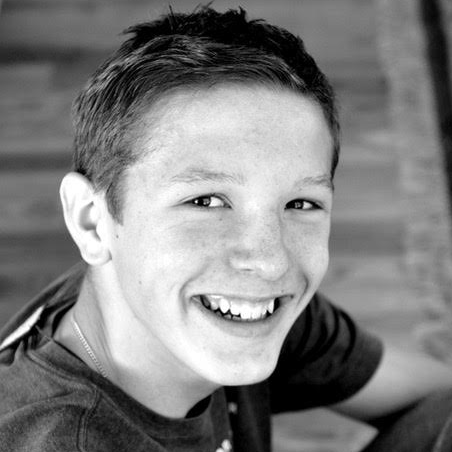Student Essay:
A Shepherd In the Wilderness

By Bennet Bauer
Being a priest in the Southwest in the 1870s was not a calling for the faint of heart.
Father Peter Anthony Levy, a French missionary, was one among the many circuit-riding priests of the Wild West. Throughout the 1870s, the number of Catholics in the Lone Star state rapidly increased, which created a need for priests to travel from town to town and even ranch to ranch. Life in the western wilderness was challenging, and the newly arriving settlers needed someone to minister to them more than ever before. Covering thousands of miles every year, the circuit-riders risked their lives to minister to Texans scattered throughout the state. Hardships and discomfort became routine to these courageous priests, who regularly faced storms, starvation, and outlaws, and Fr. Levy was no exception.
In 1875, Fr. Levy, while traveling through the bayous of Orange County, Texas, happened upon a bandit hideout. Held at gunpoint, the priest was forced to dismount. The outlaws promptly added Fr. Levy’s horse to their own string, along with the priest’s saddlebags and equipment. This included his altar stone, chalice, water, and food. In an attempt to make the priest show fear, they mocked him continually and at last brought him to a certain tree at the far edge of their camp. Several notches had been cut deep into the tree, and the bandits told him that each stood for a man who had crossed their path whom they had hung . After unsuccessfully trying to pressure the priest to beg for mercy, the ruffians told him to hit the trail. If he returned, they said, he would die by the same fate as their other victims.
Fr. Levy gave the bandits an answer they did not expect: “Boys, you have the drop on me now. I’ll do as you say. But remember this: I’ll be back, and I’ll make you line up together and recite the Lord’s Prayer.” With those parting words, the priest set out on foot, leaving the outlaws more amused than angry at his nerve.
Three days later, Fr. Levy galloped into the bandit camp with a new horse and a long gun strapped to his dusty saddle. He had returned, not only for his equipment and horse, but also to make good on his earlier claim. As the bandits reached for their guns, the priest whipped out his Winchester from its leather scabbard and cocked the weapon, all in one quick motion. The men froze, looking up at the unusual figure on horseback with scornful amusement in their eyes.
Where there is great love there are always miracles.
Willa Cather, Death Comes for the Archbishop
At last, one of them broke the silence by laughing and asked Fr. Levy if they were supposed to be intimidated by a priest holding a gun. “I can knock the eye out of a fly with this rifle,” Fr. Levy quickly answered back. With stunning rapidity, the priest turned in his saddle and blazed away at the notched tree. The astonished bandits stood, too bewildered to move. Shot after shot ripped into the trunk, the bullet holes forming the shape of a cross. The outlaws, many of whom had used a rifle since childhood, were no strangers to expert marksmanship, yet never before had they seen such perfect accuracy. The fact that it was a priest who was giving them this shooting display humbled them all the more. In seconds, the tense exchange was over.
Swinging his long gun to cover the bandits, Fr. Levy signaled for them to move away from their weapons. Cowed, the outlaws obeyed. The priest lined them up in the middle of the camp and then paused, waiting expectantly. Realizing what he wanted, one of the ruffians reluctantly began the Lord’s Prayer. The other outlaws joined in, being careful to say the words with due reverence. When they had finished, Fr. Levy slid his Winchester back into its scabbard, retrieved his stolen horse and equipment, and rode out of the camp. Before joining the priesthood and coming to Texas, Levy had been a sharpshooter in the French Army. So good were his skills, it was said he could hit a man at more than a thousand yards.
It is impossible to believe that these outlaws were not in some way affected by their experience with Fr. Peter Levy. Not only had they been put in their place, but the priest had also allowed them to go free. His remarkable courage in the face of bandits displays his extraordinary determination and bravery. Every bit as daring and tough as the men who settled the Wild West, Fr. Levy serves as an example of how the circuit-riding priests would allow nothing to stand in their way.
__________________________________________________________________________________
Bennett Bauer is 17 years old, a senior in high school, and the author of Morning Star, a “Thoroughly Catholic Adventure on the High Seas.” He lives with his nine siblings on the Eastern Shore of Virginia and enjoys beach-combing for ship wreckage. He plans to attend Regent University Honors College, where he will pursue an English major.
Every time we administer the CLT, the forty highest-scoring students are invited to contribute an essay or piece of creative writing to the Journal. Congratulations to Mr. Bauer on his accomplishment! If you enjoyed this piece, you can see more from our top students in this essay on Shakespeare’s treatment of Mark Antony, or this short story adapted from Mark 5. And don’t miss our podcast on education and culture, Anchored.
Published on 21st March, 2022. Page image of Cathedral Rock, Sedona, AZ, by Tomas Castelazo (source).